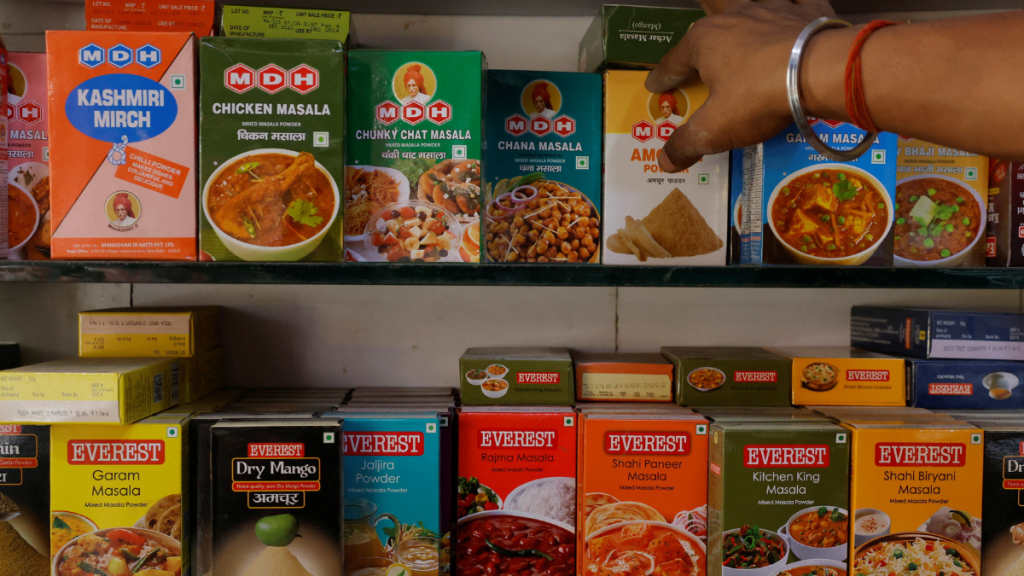Quality concerns over Indian spices and regulatory action following it could put almost half of the exports in jeopardy, so the situation needs to be addressed urgently, according to a report by think tank Global Trade Research Initiative (GTRI).
Reports from the United States, Hong Kong, Singapore, Australia, and now Malé have raised questions about the quality of spices supplied by leading Indian firms MDH and Everest.
With India having exported spices valued at approximately $692.5 million to these countries in the fiscal year 2024, the stakes are high, the report by GTRI said.
“If China, influenced by actions in Hong Kong and Asean based on the precedents set by Singapore, decides to implement similar measures, Indian spice exports could see a dramatic downturn. The potential repercussions could affect exports valued at $2.17 billion, representing 51.1% of India’s global spice exports,” founder of GTRI Ajay Srivastava said.
In FY 24 India’s spices exports stood at $ 4.2 billion.
This situation could worsen if the European Union, which regularly rejects Indian spice consignments over quality issues, follows suit. An EU-wide rejection could impact an additional $2.5 billion, bringing the total potential loss to 58.8% of India’s worldwide spice exports.
“India needs to address the quality issues with urgency and transparency. However, the response from Indian authorities has been tepid and formulaic,” Srivastava said.
Following international criticism, both the Spices Board and the Food Safety and Standards Authority of India (FSSAI) began routine sampling, yet no definitive statements about spice quality have been issued by these or any other government agencies.
“Swift investigations and the publication of findings are essential to re-establish global trust in Indian spices. Erring firms should face immediate repercussions,” he added.
Recent years have seen significant action taken against Indian spices by several countries due to safety concerns. Hong Kong and Singapore banned the sale of popular brands MDH and Everest after detecting carcinogenic ethylene oxide in their products. This led to a mandatory recall from shelves. Similarly, the United States has increased scrutiny and rejection rates for these brands, especially after detecting salmonella in some MDH spice shipments. The Maldives also banned MDH and Everest spices after similar findings.
The primary violations in these incidents include the presence of ethylene oxide, a carcinogen used as a fumigating agent, and salmonella contamination, a common bacterial cause of foodborne illness. Such substances pose significant health risks, including cancer and severe gastrointestinal distress. Violations also extend to pesticide residues and non-compliance with Maximum Residue Limits (MRLs), impacting overall food safety.


